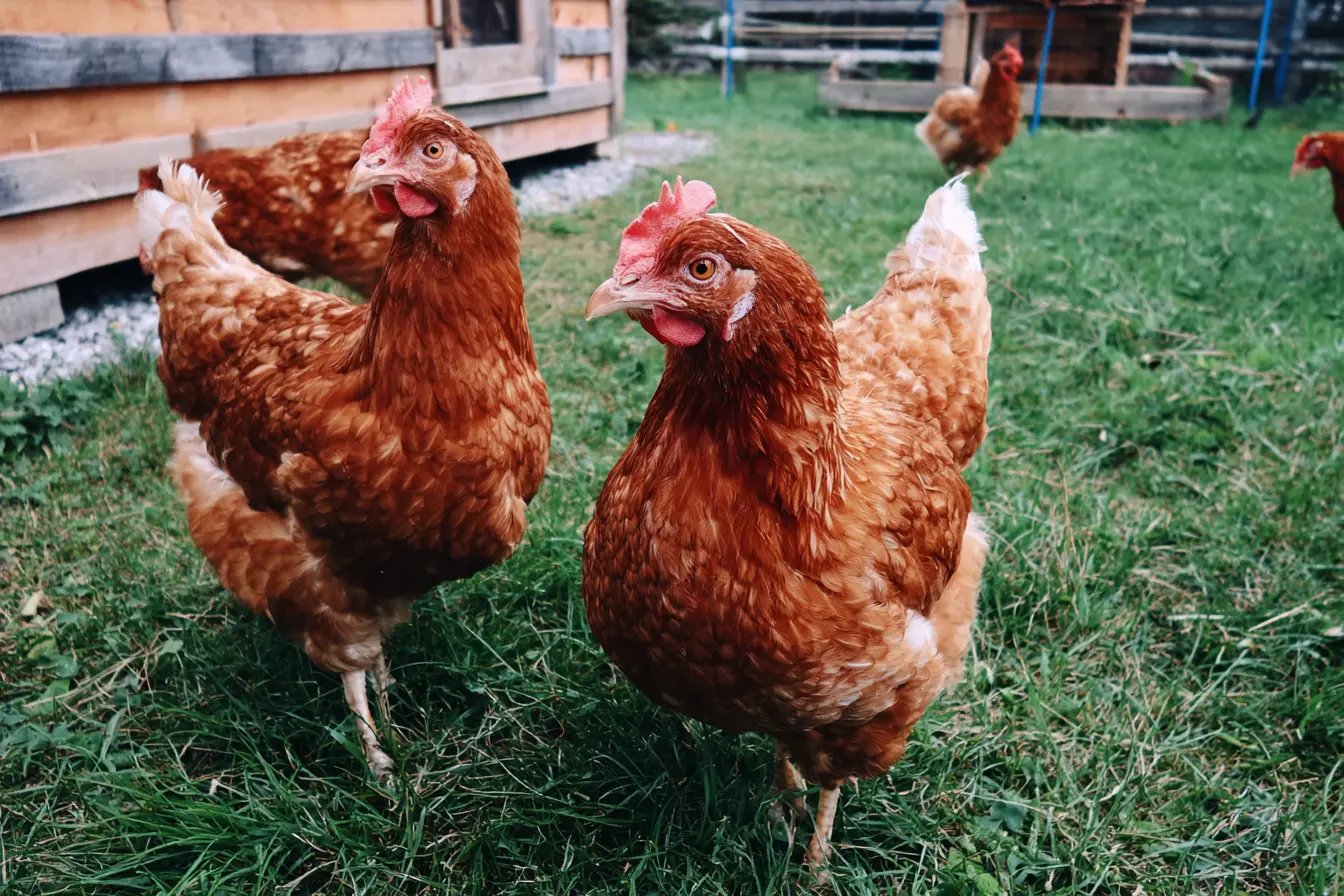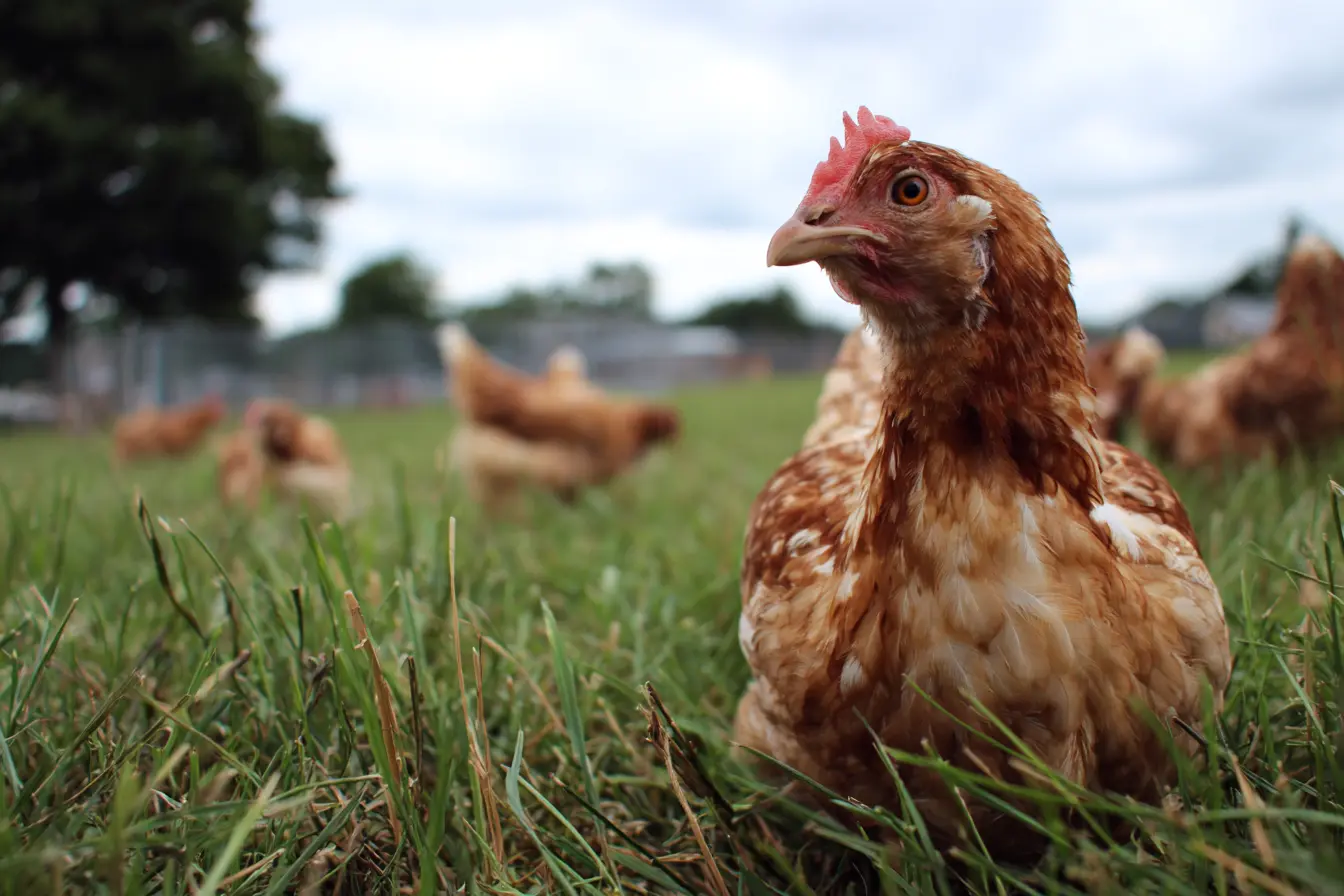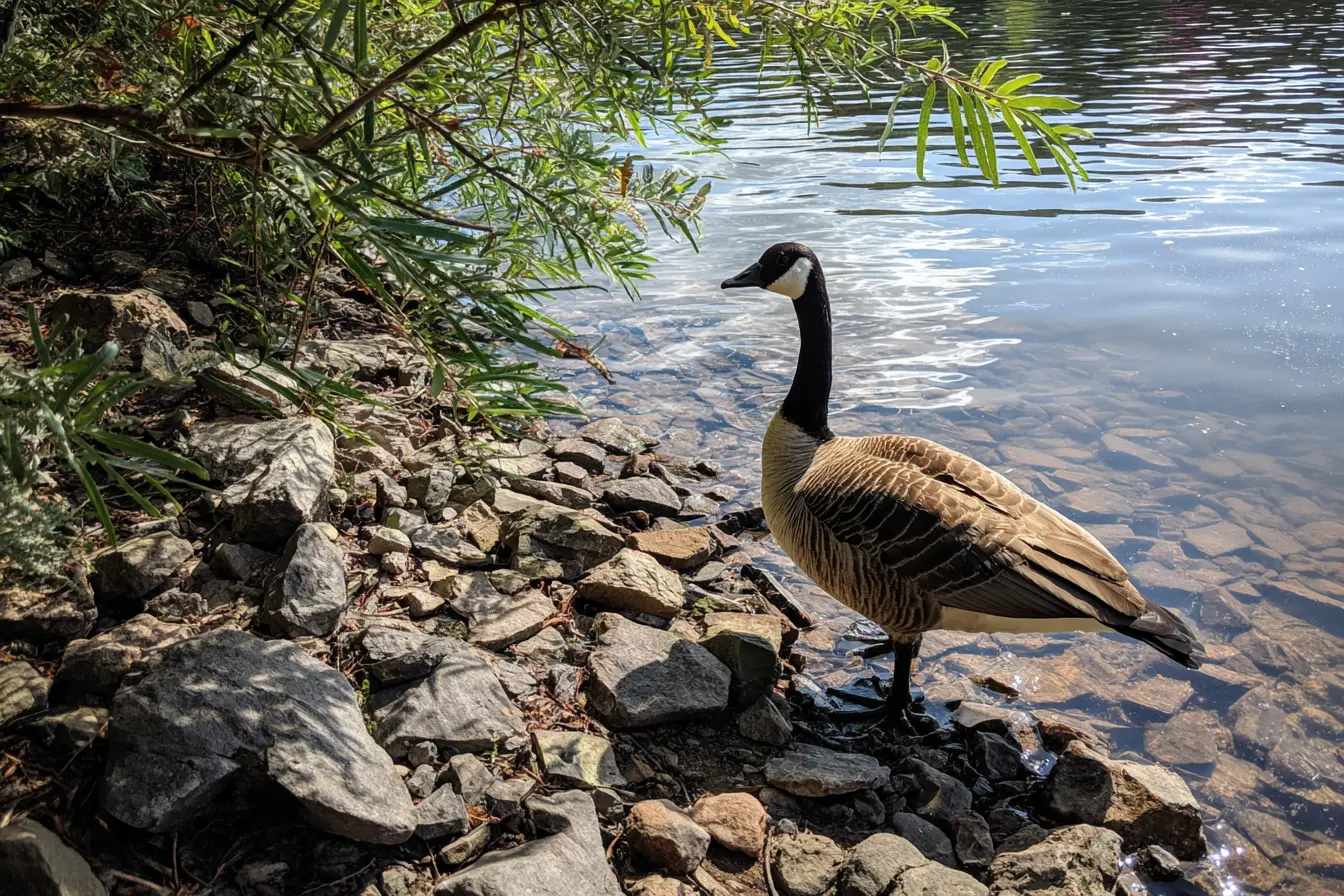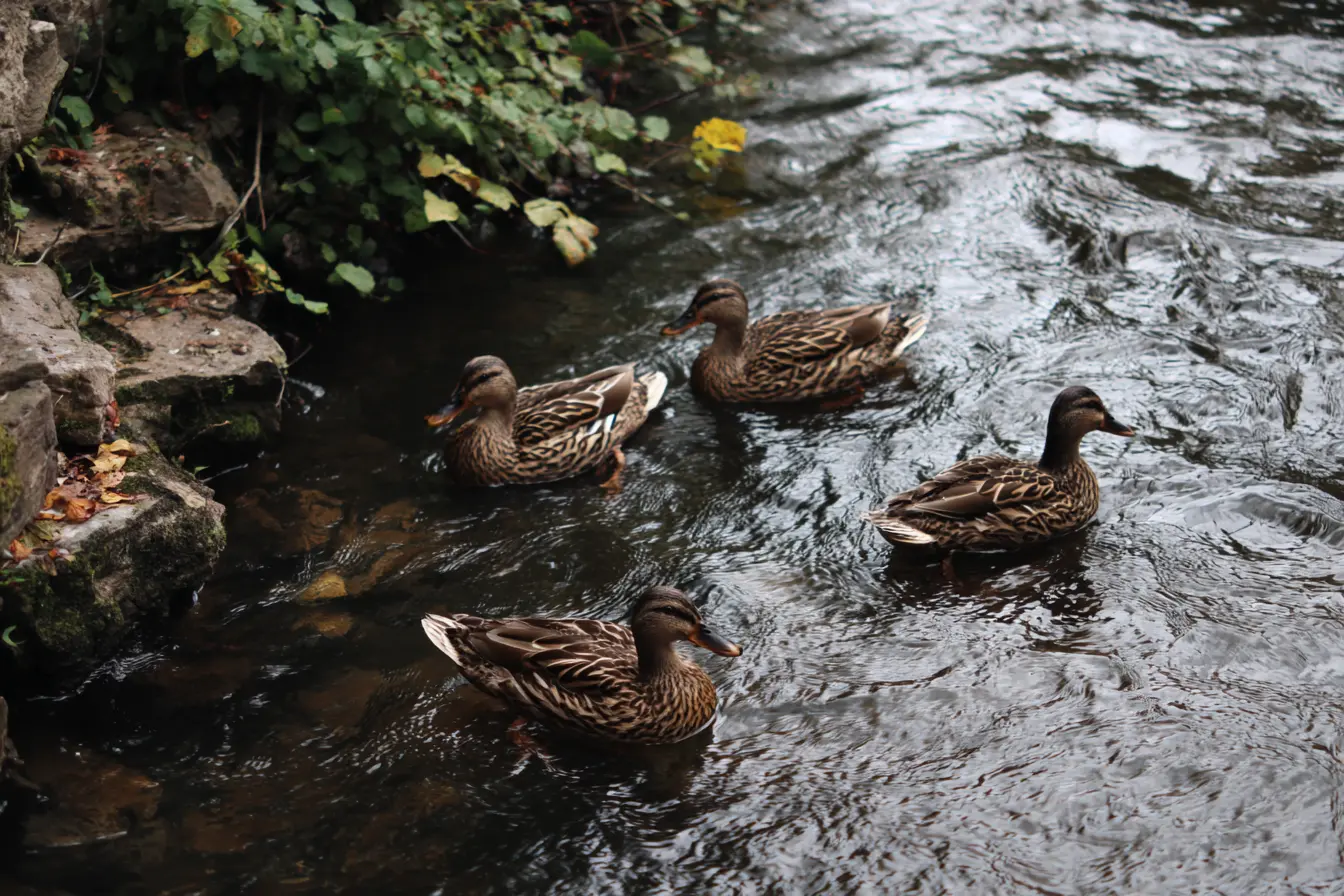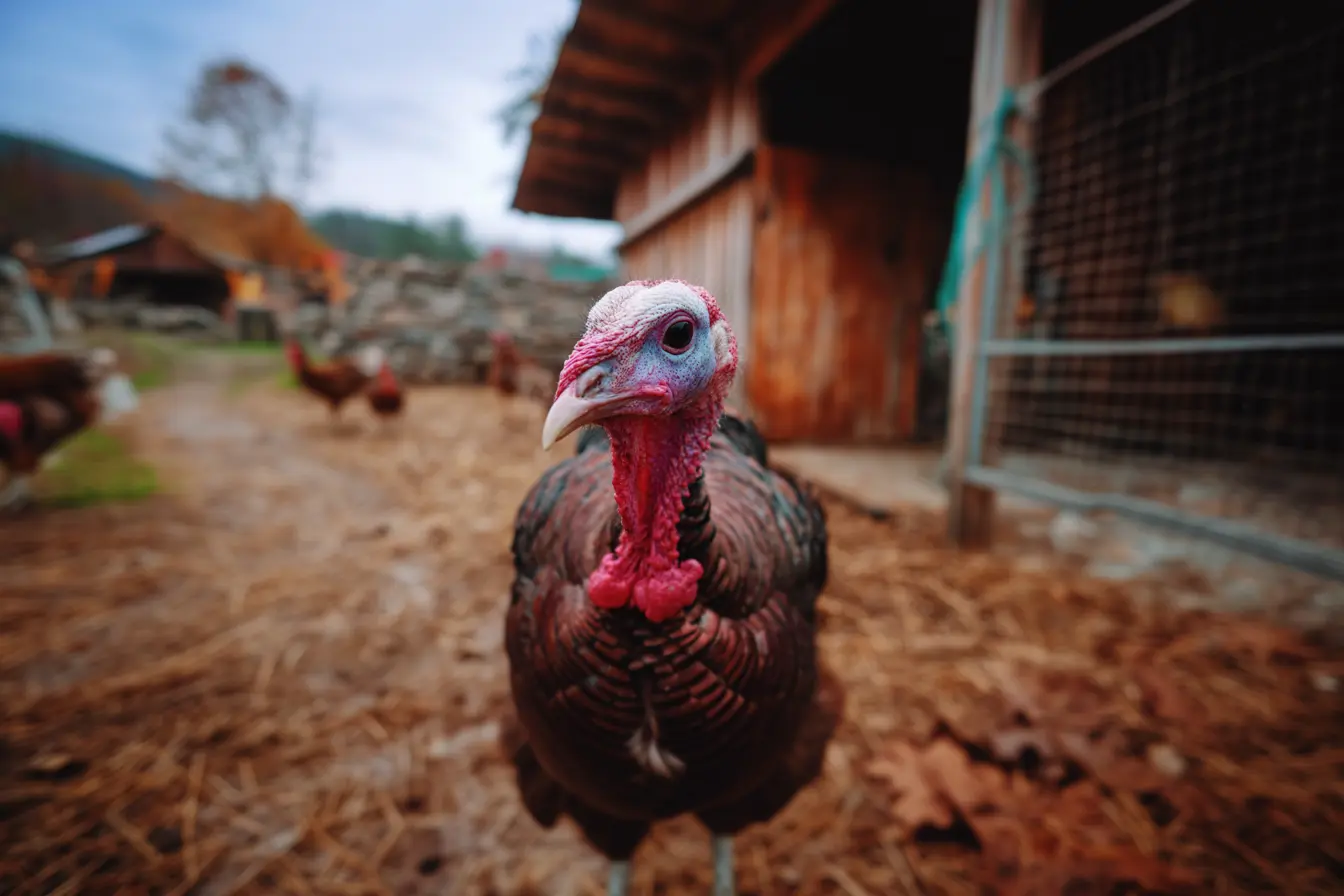
Common Health Conditions in Turkeys
Turkeys are rewarding birds to raise, whether for meat production, breeding, or as part of a mixed-species flock. While generally hardy, they are particularly susceptible to certain health issues, some of which can spread rapidly and prove fatal if not addressed early.
This guide outlines the most common and significant health conditions affecting domestic turkeys, along with best practices for prevention, diagnosis, and treatment.
Blackhead Disease (Histomoniasis)
Overview
Blackhead disease is a highly infectious protozoal disease primarily affecting turkeys. It is considered one of the most serious diseases for turkeys, especially when they are housed with chickens.
Symptoms
- Lethargy and drooping wings
- Sulphur-yellow droppings
- Darkened skin on head and neck (in severe cases)
- Weight loss
- Decreased appetite
Causes
- Caused by Histomonas meleagridis protozoa
- Transmitted via the cecal worm (Heterakis gallinarum), which can live in chickens without symptoms
Treatment
- No licensed treatments in the UK
- Some off-label wormers and acidifiers may reduce severity (consult a vet)
Prevention
- Avoid keeping turkeys with chickens
- Practice strict biosecurity
- Regular deworming to eliminate cecal worms
Fowl Cholera (Pasteurellosis)
Overview
Fowl cholera is a bacterial infection caused by Pasteurella multocida, affecting turkeys of all ages but more commonly adults.
Symptoms
- Swollen wattles, face or joints
- Nasal discharge
- Diarrhoea
- Cyanosis (bluish combs and wattles)
- Sudden death in acute cases
Causes
- Poor hygiene and exposure to wild birds or rodents
- Contaminated feed, water or bedding
Treatment
- Antibiotics such as tetracyclines or sulphonamides (under veterinary guidance)
- Supportive care and isolation
Prevention
- Control rodents and wild bird exposure
- Maintain clean, dry living areas
- Vaccination available in areas with recurrent outbreaks
Mycoplasma Gallisepticum (MG)
Overview
This chronic respiratory disease affects the sinuses, air sacs and lungs of turkeys and is highly contagious.
Symptoms
- Swollen sinuses (especially under eyes)
- Sneezing and coughing
- Nasal discharge
- Decreased feed intake
- Stunted growth
Causes
- Direct contact with infected birds
- Contaminated equipment or poor ventilation
Treatment
- Antibiotics (e.g., tylosin) to control symptoms
- Cull chronically affected birds in serious cases
Prevention
- Maintain closed flock or quarantine new arrivals
- Practise excellent biosecurity
- Keep coops well ventilated
Coccidiosis
Overview
Coccidiosis is a parasitic disease caused by protozoa that damage the intestinal lining. Turkeys are particularly vulnerable in the brooder and grower stages.
Symptoms
- Bloody or watery droppings
- Poor growth and feed conversion
- Lethargy
- Ruffled feathers
- Pale combs and wattles
Causes
- Spread via faecal-oral route in contaminated litter or feed
Treatment
- Use of anticoccidial medications (e.g., Amprolium)
- Isolate affected birds
Prevention
- Use medicated starter feed where allowed
- Maintain clean bedding and dry living spaces
- Rotate pens or pastures regularly
Newcastle Disease
Overview
Newcastle disease is a severe viral infection affecting the respiratory, digestive, and nervous systems. It is a notifiable disease in the UK.
Symptoms
- Twisted necks (torticollis)
- Paralysis
- Gasping or coughing
- Drop in egg production
- Greenish diarrhoea
Transmission
- Spread by infected birds, faeces, feed, water, and equipment
Treatment
- No cure; notify authorities immediately
- Strict biosecurity and culling of affected flocks
Prevention
- Vaccination (not permitted in all regions without special approval)
- Quarantine new birds
- Avoid contact with wild birds
Worm Infestations
Overview
Turkeys are prone to various internal parasites, including roundworms, cecal worms and gapeworms.
Symptoms
- Weight loss
- Diarrhoea
- Reduced growth or egg production
- Gaping or open-mouthed breathing (gapeworm)
Causes
- Contaminated soil or water
- Intermediate hosts such as earthworms or insects
Treatment
- Deworming with poultry-approved products (under vet guidance)
- Repeat treatments as needed
Prevention
- Rotate pastures
- Clean waterers and feeders regularly
- Avoid overcrowding
Avian Influenza
Overview
Avian influenza (bird flu) is a highly contagious viral disease affecting multiple species, including turkeys. It is a notifiable disease.
Symptoms
- Swollen head and face
- Sudden death
- Nervous signs (tremors, twisted neck)
- Diarrhoea
- Drop in egg production
Transmission
- Wild birds, contaminated clothing or equipment
Treatment
- No treatment; must be reported to DEFRA or APHA
- Affected flocks are culled to prevent spread
Prevention
- Enforce strict biosecurity
- Keep turkeys indoors during outbreaks
- Eliminate contact with wild birds
Heat Stress
Overview
Turkeys are sensitive to high temperatures and can suffer heat exhaustion or heatstroke during summer months or in poorly ventilated housing.
Symptoms
- Panting and open-mouthed breathing
- Wings spread away from the body
- Lethargy and weakness
- Collapse or death in extreme cases
Causes
- Overheating due to poor ventilation or high humidity
- Lack of access to shade and fresh water
Treatment
- Move affected turkeys to a shaded, cool area
- Provide electrolytes in water
- Mist lightly with cool (not cold) water
Prevention
- Provide adequate ventilation and shade
- Offer fresh water at all times
- Avoid overcrowding
Bordetellosis (Turkey Coryza)
Overview
Caused by Bordetella avium, this upper respiratory tract disease is common in commercial flocks but can also affect backyard turkeys.
Symptoms
- Coughing and snicking
- Foamy discharge from eyes
- Voice changes or loss of vocalisation
- Laboured breathing
- Poor growth in young birds
Causes
- Spread by direct contact or contaminated equipment
Treatment
- Antibiotics may help with secondary infections
- Supportive care and sanitation
Prevention
- Avoid mixing turkeys with other bird species
- Disinfect housing and equipment
- Quarantine new stock
Vitamin Deficiencies
Overview
Turkeys, particularly fast-growing breeds, require a precise balance of vitamins and minerals. Deficiencies can result in a variety of health issues.
Symptoms
- Curled toe paralysis (Vitamin B2 deficiency)
- Twisted neck or wry neck (Vitamin E deficiency)
- Poor growth or feathering
- Weakness or stunted development
Treatment
- Oral or water-based vitamin supplements
- Improve diet quality
Prevention
- Use balanced turkey-specific feed
- Avoid feeding only grains or kitchen scraps
- Monitor supplement intake
Cannibalism and Pecking Injuries
Overview
Cannibalism and feather pecking can occur in stressed or crowded turkeys, particularly in confined housing systems.
Symptoms
- Missing feathers
- Bloody wounds on tail, vent or wings
- Increased aggression
Causes
- Overcrowding
- Poor diet (especially protein or salt deficiencies)
- Boredom or stress
Treatment
- Isolate injured birds
- Apply wound sprays or antiseptics
- Identify and remove aggressive individuals
Prevention
- Provide adequate space per bird
- Use pecking deterrents (hanging cabbages, enrichment items)
- Ensure proper nutrition
Conclusion
Raising turkeys can be a fulfilling venture, but it comes with specific health challenges that require attentiveness and proactive care. Key to preventing disease is excellent husbandry: clean housing, proper nutrition, good ventilation, and strict biosecurity.
Understanding the signs of common and serious illnesses in turkeys allows for early intervention and may save both individual birds and entire flocks. Always seek advice from an avian or poultry vet if illness is suspected, and comply with local regulations for notifiable diseases like avian influenza or Newcastle disease.
Healthy turkeys are productive, social, and a delight to observe—keep their welfare top of mind, and they’ll thrive under your care.
Vets near you
Speciality vets
- Aquatics vet specialists
- Birds vet specialists
- Camelids vet specialists
- Cats vet specialists
- Cattle vet specialists
- Deer vet specialists
- Dogs vet specialists
- Equines vet specialists
- Exotic vet specialists
- Goats vet specialists
- Pigs vet specialists
- Poultry vet specialists
- Sheep vet specialists
- Small Mammals vet specialists
- Wild vet specialists
Vet facilities
- Accessible by public transport
- Blood testing
- Car park nearby
- Client car park
- Dentistry
- Diagnostic imaging
- Disabled public access
- Flea and worm treatments
- Microchipping
- Mobile services
- Neutering
- Open at weekends
- Out-of-hours service
- Referral interests
- Referrals only
- Street parking outside
- Toilets available
- Vaccinations
